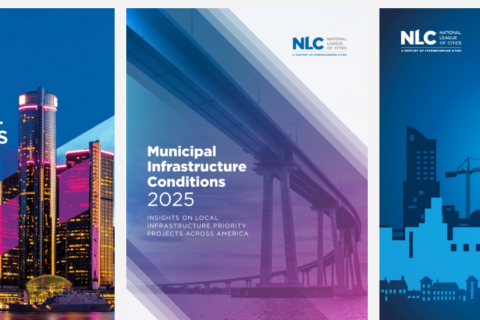The City of Seattle has made remarkable strides in early childhood education, driven by the dedicated efforts of its Department of Education and Early Learning (DEEL). DEEL oversees public funds and supports early learning initiatives through a comprehensive structure that includes the Early Learning Division and the K-12 and Postsecondary Division, positioning them to operate on a continuum of learning. DEEL meets the needs of children and families by funding strategic investments, monitoring and evaluating performance and implementing responsive program adjustments while also developing long-term systemic improvements to educational outcomes.
DEEL plays a pivotal role in shaping inclusive, culturally responsive programs, working closely with local communities, educational institutions and cultural organizations to ensure that every child receives a high-quality early learning experience.
NLC’s Early Childhood Success team is highlighting Seattle’s efforts in early childhood through the Decades in the Making initiative. This initiative aims to explore and showcase successful models of early learning and early childhood provider support across various cities. NLC is learning about Seattle’s approach and the historical and ongoing efforts that have shaped its early childhood programs.

What Seattle Gets Right About Early Childhood Programs
1. Culturally Responsive Curriculum
For more than 30 years, the City of Seattle’s early childhood education system has stood out for its commitment to being culturally responsive and creating inclusive early learning environments. The Seattle Preschool Program (SPP), which began in 2015, exemplifies this dedication. A collaboration between DEEL, the Seattle Public School District and various community partners, SPP offers subsidized high-quality, evidence-based preschool, with most Seattle families qualifying for free tuition.
One of the program’s key strengths is its emphasis on a culturally responsive and inclusive curriculum. Classrooms are equipped with books, play materials and decor that integrate and celebrate diverse cultures and perspectives throughout their daily activities. SPP offers dual-language programs at select sites, providing instruction in English and additional languages such as Spanish, Chinese-Mandarin, Somali, Arabic and Vietnamese. This approach not only supports bilingualism but also fosters cultural appreciation among young learners.
2. Data-Driven Quality Workforce
Data plays a crucial role in Seattle’s early childhood education strategy. The city uses data to identify and address disparities, ensuring that resources are allocated where they are most needed. By analyzing program participation and outcomes, Seattle can make informed decisions to tailor programs to meet the diverse needs of its population.
Coaching childcare providers is a key component of their data-driven approach. As part of their involvement in SPP, preschool classrooms benefit from a comprehensive set of Quality Practice and Professional Development supports, including assessments, training, curriculum instruction and coaching that encourages professional development rather than penalizing. Providers meet monthly with their DEEL coach, who provides tailored, one-on-one, intensive, intentional and reflective onsite instructional coaching, along with access to professional development on various topics, including culturally responsive pedagogy and trauma-informed care. This approach allows providers to be more reflective and effective in their teaching strategies. This helps providers improve their practices in a supportive environment, ultimately benefiting the children they serve.
3. Community Engagement and Partnerships
Seattle understands that effective early childhood programs are built on strong community involvement. The thoughtful and inclusive approach to engagement is deeply rooted in what they informally call the “Seattle Process.” This involves actively engaging local families, cultural organizations and community groups in both the development and implementation of Seattle’s early learning programs. It’s so ingrained in their methodology that it’s almost intuitive, guiding every aspect of how programs are designed and delivered.
A prime example of this is the Families, Education, Preschool, and Promise Levy, a voter-approved initiative that funds early childhood education. Seattle’s commitment to education is reflected in its history of supporting educational initiatives. Since the passage of the city’s first education levy in 1990, residents have backed five additional education levies, including the 2018 Families, Education, Preschool, and Promise Levy, which allocated $619 million over seven years to enhance educational outcomes, prepare students for the job market and address race-based education gaps. This levy supports programs that are tailored to the unique cultural and economic needs of Seattle’s diverse population. By involving community stakeholders in decision-making processes, Seattle ensures that its early childhood programs are both relevant and effective.
Explore How Boston is Reshaping the Lives of Children
Boston and its city leaders have a long-held commitment to families through efforts such as the city’s universal pre-k initiative. Mayor Michelle Wu is working hard to continue the city’s historical commitment to families and to make the City of Boston the best city for families.











